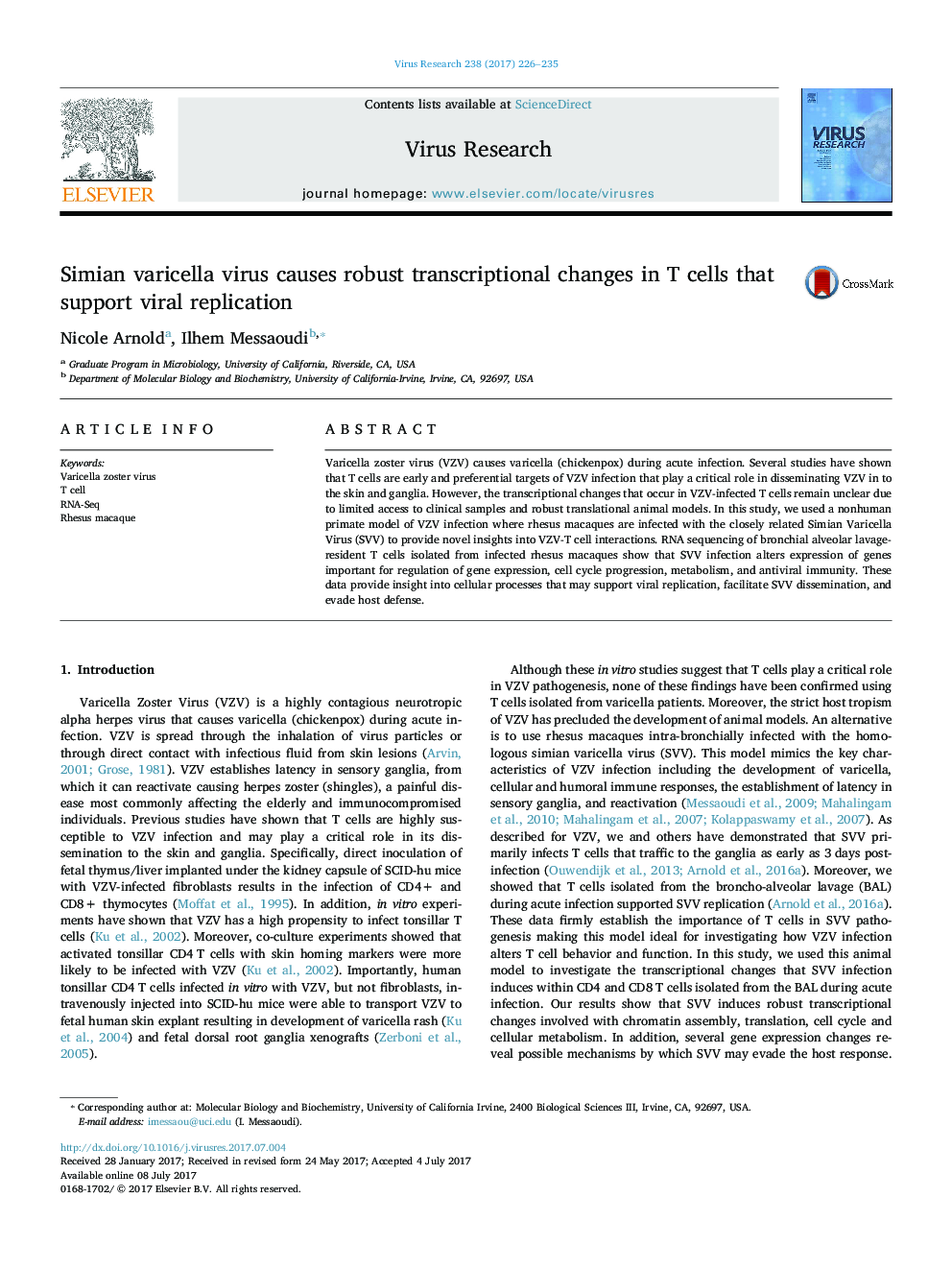| Article ID | Journal | Published Year | Pages | File Type |
|---|---|---|---|---|
| 5675377 | Virus Research | 2017 | 10 Pages |
â¢T cells play a major role in varicella viruses dissemination to ganglia and skin.â¢SVV infection of T cells increases the expression of cell cycle genes.â¢SVV infection downregulates genes important for antigen presentation in T cells.â¢SVV T cell infection disrupts expression of genes vital for metabolism and immunity.
Varicella zoster virus (VZV) causes varicella (chickenpox) during acute infection. Several studies have shown that T cells are early and preferential targets of VZV infection that play a critical role in disseminating VZV in to the skin and ganglia. However, the transcriptional changes that occur in VZV-infected T cells remain unclear due to limited access to clinical samples and robust translational animal models. In this study, we used a nonhuman primate model of VZV infection where rhesus macaques are infected with the closely related Simian Varicella Virus (SVV) to provide novel insights into VZV-T cell interactions. RNA sequencing of bronchial alveolar lavage-resident T cells isolated from infected rhesus macaques show that SVV infection alters expression of genes important for regulation of gene expression, cell cycle progression, metabolism, and antiviral immunity. These data provide insight into cellular processes that may support viral replication, facilitate SVV dissemination, and evade host defense.
